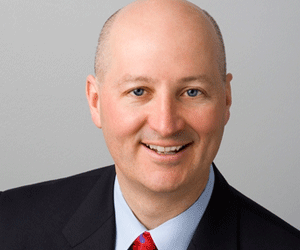
LINCOLN, Neb. (AP) — Nebraska Gov. Pete Ricketts signed three tax measures Tuesday designed to shield residents from state tax increases triggered by inflation and the new federal tax law.
Ricketts touted the measures as important accomplishments in this year’s session, but expressed disappointment that lawmakers didn’t approve his property and corporate tax package.
“It really was disappointing to see the Legislature not be able to pass a property tax bill,” Ricketts said, adding that he would continue to work on the legislation for next year’s session.
The governor’s proposal sank in part because some senators offered competing bills. One measure would have lowered property taxes by raising the state’s sales tax, increasing cigarette taxes and eliminating sales-tax exemptions. Another would have cost the state more than $1 billion a year — roughly one-fourth of Nebraska’s annual budget — which the governor argued was unsustainable.
Critics of Ricketts’ plan said it would have taken too long to provide major benefits for farmers, who have seen their property taxes soar in tandem with land values. Others objected to using the state’s emergency cash reserve to pay for the first year of tax cuts, and noted that supporters hadn’t specified how they would pay for it in the future.
Ricketts approved the new measures as lawmakers prepare to convene Wednesday for the last day of this year’s session.
One measure will adjust the state’s Social Security income tax limits automatically to keep pace with inflation, starting in 2020.
The law by Sen. Brett Lindstrom, of Omaha, seeks to address cost-of-living increases that can bump taxpayers into a higher bracket, where they end up paying more in taxes. It won’t go into effect until 2020, and would cost the state an estimated $1.3 million in lost revenue by fiscal year 2021.
Lawmakers passed a similar law for individual income taxes in 2014. Lindstrom said it would make it easier for seniors to remain in Nebraska after retirement.
Another law by Sen. Jim Smith, of Papillion, will prevent the new U.S. tax law from triggering an automatic tax increase in Nebraska. The bill seeks to neutralize most of the effects of the law approved by congressional Republicans and President Donald Trump.
Nebraska’s tax system is changing because lawmakers have connected many parts of it to the federal tax code, leading to automatic state-level shifts when federal policy changes.
The third new law, also by Smith, will adjust Nebraska’s personal property tax so that farmers and businesses are held harmless on taxes they owe for business equipment. Under the federal tax law, many would have had to pay more to the state.
Both bills “are absolutely critical to keeping Nebraskans whole,” Smith said.
